#books to movies
Text

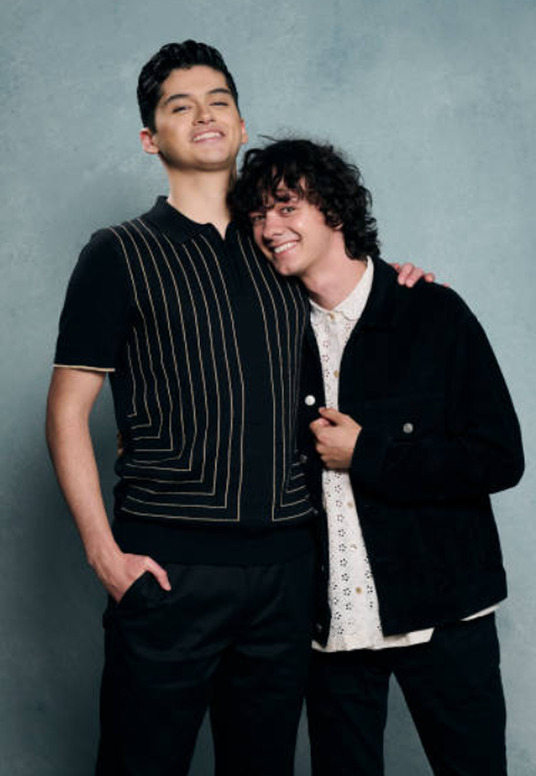

THESE BOYS!
The best casting from book to film/series.
#heartstopper#aristotle and dante discover the secrets of the universe#rwrb movie#books to movies#netflix#prime video#ari and dante#alex and henry#nick and charlie
116 notes
·
View notes
Text
the paolini to sanderson pipeline is like a rite of passage for fantasy readers atp
#jacethebibliophile#fantasy books#fantasy#christopher paolini#brandon sanderson#books#inheritance cycle#the inheritance cycle#eragon#murtagh#the stormlight archive#mistborn#the way of kings#elantris#the reckoners#to sleep in a sea of stars#bookworm#books to movies#bookstagram#booktok#reading#readers#fantasy reads#fantasy reader
176 notes
·
View notes
Text
Okay but but hear me out, what kind of ritual or sacrifice do I have to make to whatever entity that allowed for Good Omens S2, RWRB, Heartstopper S2 AND young royals S3 to be a thing to negotiate the next tragic and chaotic pairing to be one Simon Oliver Snow and one Tyrannus Basilton Grimm-Pitch on our screens?? Bc… pretty pretty pretty pleaaaaase. Its beyond a want it’s a cosmic need.
#red white and royal blue#heartstopper#Simon snow#baz pitch#baz grimm pitch#casey mcquiston#rainbow rowell#books to tv#books to movies#booksbooksbooks#books and literature#queer books#queer media#ranting#good omens#not to mention I’d love to see SAPHIC depictions but we all know they like to cancel those#would love to see one last stop made into a movie and iksw made into a series#i kissed shara wheeler#one last stop
105 notes
·
View notes
Photo
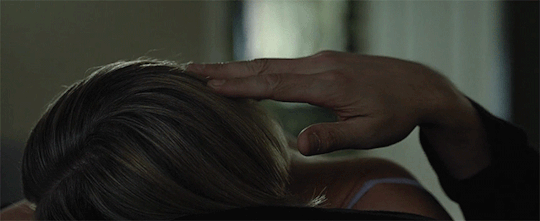

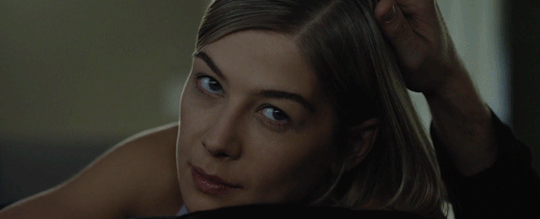
“What are you thinking? How are you feeling? What have we done to each other? What will we do?” - Gone Girl (2014)
#gone girl#gillian flynn#david fincher#movies#books to movies#movie gifs#my gifs#gone girl gifs#amy elliot dunne#nick dunne#nicholas dunne#amy dunne
56 notes
·
View notes
Text







red white & royal blue by casey mcquiston (2019)/Red white and Royal Blue (2023)/Unknown/Red white and Royal Blue (2023)/red white & royal blue by casey mcquiston (2019)/@typewriter-worries/red white & royal blue by casey mcquiston (2019)
41 notes
·
View notes
Text
rwrb movie came out a week ago and I'm not done freaking out over it and now the percy jackson series just dropped a release date and that thirty-three second clip already looks perfect? I'm thriving
#im not saying i need breath but that's exactly what i mean#my favorite books coming to life on screen 😭#rwrb#red white and royal blue#pjo#percy jackson#percy jackson and the olympians#books#books to movies#favorite books
51 notes
·
View notes
Text
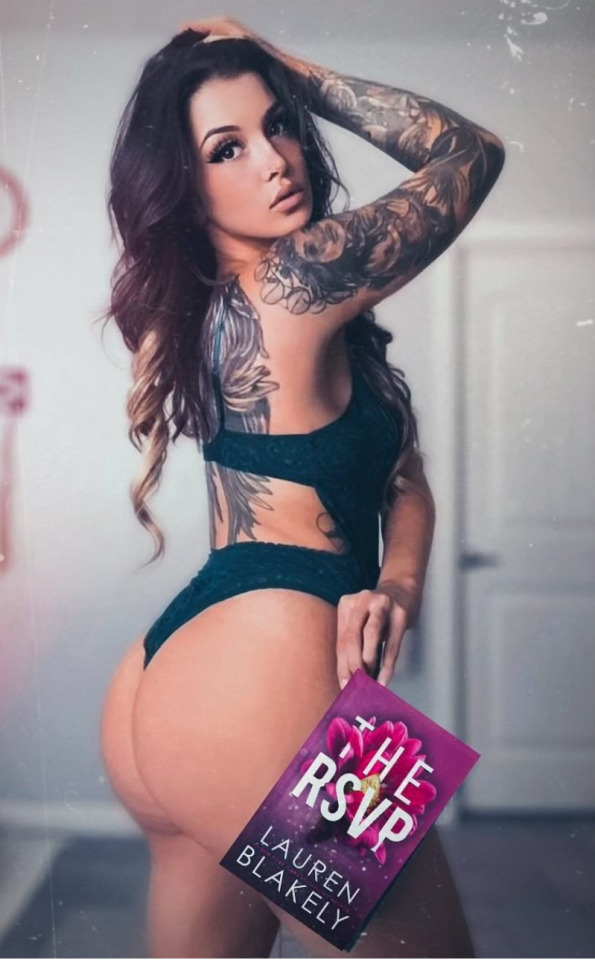
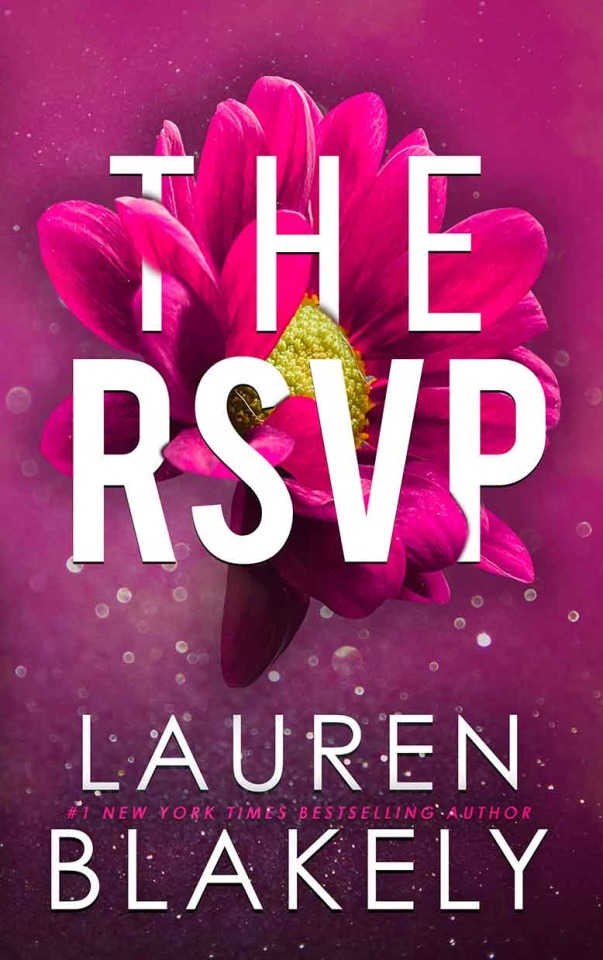
Find Kinky Smut Book Recommendations On Our Discord Server 😘📚
#smut#smut books#bookblr#booksbooksandmorebooks#books to movies#books & libraries#books and reading#books#bookstagram#old books#bookshelf#fantasy books#romance books#new books#healthy relationships#dating#aesthetic#aesthetically pleasing#art#artists on tumblr
7 notes
·
View notes
Text
Whoooooo gave them the RIGHT to be so fucking CUTE
#it's the 'long time no seeee!'#and the 'oh and i told my sister!' 'oh! i didn’t know that!' 'yeah she's really happy for us 😇'#for me 💕#they picked amazing actors for these roles i cannot hecking wait to see this movie#red white & royal blue#rwrb#red white & royal blue movie#movie adaptation#queer movie#queer books#fsotus alexander claremont diaz#prince henry fox mountchristen windsor#alex x henry#firstprince#taylor zakhar perez#nicholas galitzine#films#movies#books to movies#🇬🇧🩷🇺🇸
21 notes
·
View notes
Text

"A rumble ain't a rumble without me!" - Dallas Winston The Outsiders
#the outsiders#dallas winston#greasers#the outsiders 1983#60s#1980s movies#80s#books#books to movies#ponyboy curtis
14 notes
·
View notes
Text

Did you watch it yet?
Dune Part Two.
6 notes
·
View notes
Text
so next year we’re getting Daisy Jones and the Six, Shadow and Bone S2, probably Heartstopper S2, The Colour Purple musical movie, American Born Chinese, and probably All the Light We Cannot See. It’s a good year for the book lovers.
#books#book adaptation#books to movies#books to tv shows#comic books#2023 movies#2023 tv shows#daisy jones and the six#shadow and bone#shadow and bone s2#heartstopper#heartstopper s2#the colour purple musical#American born Chinese#All the light we cannot see#adaption#bibliophile#Book lover#booklr#book recommendations
88 notes
·
View notes
Text
ok i’m gonna talk about the RWRB Movie...
SPOILER: i’m gonna be negative and i’m not planning on watching the movie (i guess that means ppl are gonna block me??? idk why ppl are just mass blocking because of this but whatever) (edit: per a suggestion I swapped the tag on this post so it isn't tagged under "rwrb movie")
so i’m gonna start by saying that i’ve watched the trailer a few times and honestly i love the vibes, it makes me smile ever time.
-the kiss is great
-the butt slap is everything
-Henry’s facial expressions *chefs kiss*
-the visible chain around Alex neck. yes
i’m also gonna say that its great that people ARE going to see the movie, we need more queer movies and the only way for that to happen is if ppl watch the ones that are being made now.
so the bad.
honestly i could deal with a lot of the little things. like they make my eye twitch a little but i do actually understand that you can’t 100% remake a book into a movie.
BUT
it’s June that i can’t forgive.
if i’m wrong and she is in the movie than amazing and i redact everything but it doesn’t seem to be that way.
removing June makes me SO angry. its like removing Alice from Twilight or Sam from Lord of the Rings. if Main Characters are just the romantic leads (Alex and Henry) than June defiantly falls into secondary tier - all the Super Six kinda do (Bea would be the most removable for me but is is also necessary for Henry’s development as much as June is for Alex.
June balances Alex out. the book even specifically states WHY all of the White House Trio are needed (page 28: “Alex pushes them. June steadies them. Nora keeps them honest.”) She keeps him sane and she put her life on hold to watch out for Alex, and Alex knows this!
the idea of Alex being an only child is terrifying. he is already kinda selfish (i say that lovingly) and “a little shit” without growing up with an older sibling to shut him up he would be a monster (and Nora doesn’t count because first they don’t actually meet until Ellen is running with Mike as VP and second Nora’s personality is to “go with the flow” to really steady Alex)
June also has some important moments that happen in the book! like it doesn’t really work to have Nora be fake dating Henry for the like 2 days that that happens and no June means no Magazine moment (i know that isn’t really directly in the book but its a fav for everyone). no June also really changes the tone of the Lake House....
ANWAY, moving away from June here is some other things that i don’t like (because its my rant and i want to, feel free to change my mind)
- the height difference (i did love the lifts comment in the trailer but idk if they’ll be able to keep that up in a way that makes since - that means that if they are every barefoot Alex would have to be shorter *cough* like swimming)
-the actor for Alex is to old. i know ppl are really split about this but the actor feels put together and like an adult to me (vs. book Alex feels very young - or he honestly acts his age of 21/22). i think the polo match scene says a lot for me in the postures of the 2 actors, Henry is ok (tho honestly i think he wouldn’t have the loose posture once he rejoined ppl but its cute so pass) but Alex is to stiff, he should be almost bouncing as he walks.
-WFT is Ellen’s accent in the trailer???
-i heard a rumor that Raf and Liam are merged and redone. Gross and big no.
-King instead of Queen. i understand why this was done but the tone changes a lot in my head of abusive Grandpa vs. Grandma
-Zahra. don’t like, the vibe is off with the actress... can’t explain why except the smile in the photos and the bow in the trailer
-i feel like some of the scenes feel still (this is 100% my opinion and i could be reading this VERY wrong so ignore this if you interpret it differently)
i really wanted to like the movie but realistically i probably wouldn’t watch the movie anyway because i have issues with that so..... i guess it doesn’t matter.
i hope ppl who watch it enjoy it and please separate tags of movie vs book, thanks
#rwrb#RED WHITE AND ROYAL BLUE#rwrb book#red white and royal blue book#rant#rwrb movie negativity#first prince#books to movies#red white and royal blue
15 notes
·
View notes
Text
Writer Beware: How a Book Really Becomes a Movie.
Writer Beware is an excellent site of information for those who are or want to become traditionally published. The official blog of Writer Beware® shines a bright light into the dark corners of the shadow-world of literary scams, schemes, and pitfalls. Also providing advice for writers, industry news, and commentary. Writer Beware® is sponsored by the Science Fiction and Fantasy Writers Association.
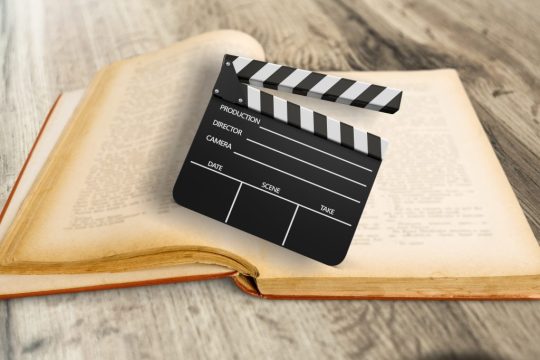
by Victoria Strauss, April 12
Book-to-film scams are extremely common these days. If the publishing industry is opaque and secretive, the movie biz is even more so, and scammers take full advantage.
From disreputable marketers claiming to take your book to pitch events, to fake agents offering to represent you to major production companies, to scammers impersonating those production companies themselves, hordes of fraudsters are soliciting writers by phone and email with tempting-sounding "offers" and "opportunities" that they promise will route your book directly to the silver screen.
In reality, of course, the fraudsters have no Hollywood connections. The sole aim of these solicitations is to trick you into paying large amounts of money for products or services--screenplays, pitch decks, "cinematic trailers", and more--that you don't need and that may not even be delivered.
How to defend yourself? As noted by Jeanne Veillette Bowerman, today's guest post author, the best way to avoid being scammed is to understand the process. The more you know about how things should work, the easier it will be to recognize questionable or dishonest practices when you encounter them.
In the article below, Jeanne offers a comprehensive overview, unpacking the multiple and often complicated paths by which a book really finds its way to the screen...which, as you'll see, bear no resemblance to the shortcuts and guarantees claimed by fraudsters.
*~*~*~*~*
How a Book Really Becomes a Movie
by
Jeanne Veillette Bowerman
Anyone passionate about their work, desperate to get published or have their book adapted to film, is a perfect target for a scam. Like this one.
First, if you’ve fallen for one of these too-good-to-be true solicitations, don’t beat yourself up. It’s easy to do. Writers tend to be solitary creatures, many without a support system. That's what makes us vulnerable to exploitation. But the best way to protect ourselves is to understand how the book-to-film process works.
Get comfortable. There’s nothing simple about Hollywood.
The filmmaking industry baffles many—even those working in it. The reality is, there is no single way to get a film made. There are quite literally as many ways to break in as there are writers who’ve successfully done so, making scams harder to identify.
Sadly, when someone proactively reaches out to you, you have to assume it’s fake until you can prove otherwise. With scams abounding, the burden of proof has shifted. Due diligence has never been more important.
You do NOT need a screenplay to sell your book-to-film rights.
You do NOT need a sizzle reel or "cinematic trailer".
You do NOT need storyboards.
You do NOT need mood boards.
You should NOT have to pay any upfront fees.
You should NOT be required to buy anything.
Let’s go through the traditional paths first, then I’ll share an unusual story to demonstrate how varied this process can be.
Most common paths for book to film
What you need is a great story with cinematic elements that would attract a large audience. If it’s for TV, it should have compelling characters and a broader world that could translate to multiple episodes.
Your agent strives for one of three opportunities:
Sell the book-to-film rights directly to a studio or producer,
Option the book for a set dollar amount for a specific period of time, or
Sign a shopping agreement for a shorter period of time with no money being paid to the author.
1. Selling the Book
When you sell your book outright, that’s it. You’re done. You no longer have any claim to said material, nor the right to participate in the adaptation. You probably won’t be able to write a future sequel if the studio owns your intellectual property … which means they own your characters. There are exceptions though, depending on how the contract was negotiated. You definitely need a talented agent or attorney to assist … not a pitching or consulting “service” that solicits you via email.
The sale price typically will be 2-3% of the film's budget (that's money paid to you, not the other way around), but it depends. It always depends. Your agent should at least try to get you Executive Producer credit, or a consulting gig. But many producers want the author far, far away from the project. Your book is merely a blueprint for the film. A lot will change—subplots and characters will disappear—which can be difficult for the author to accept.
If you’re lucky, and have the proper experience and background, they’ll give you first crack at writing the script. But don’t expect it. Your payday is the sales of the rights plus more copies of your book being sold.
But … here’s the hard part … even if you sell your book, the movie may never get made. Yes, you read that correctly. It takes millions of dollars and hundreds of people to align to make a film. People often say it’s a miracle any film gets made. They’re right.
2. Option Agreement
An option by a showrunner or producer usually runs $1,000 to $30,000 for a set period of time (again, that's money paid to you), the standard being 12 to 18 months. This gives them time to “package” the project by attaching a director, actors, etc. and (hopefully) sell it. Note: It is illegal to not pay a writer for an option, hence why you’ll sometimes see an option happen for a penny or a single dollar—which is more common when optioning a screenplay, as opposed to a book.
The vast majority of options expire long before any movie deal can be struck, but they may be renewed for an additional fee. With each renewal, your agent will likely either ask for more money or less of a time commitment. I do know authors who have optioned the same novel multiple times—not a bad payday. But still, no film and no purchase of book-to-film rights ever happened in those cases. An option doesn’t guarantee you a sale.
3. Shopping Agreement
A shopping agreement is similar to an option, only the producer tries to shop it around town without paying the option fee. Since the author receives no money, the shopping agreement typically lasts only six to nine months. Renewable, just like options.
These are more common than traditional options because the producer gets exclusivity, albeit for a shorter period of time, without coughing up money. Authors might agree to this strategy simply because there’s some sense of hope that a deal will be made.
So, how do your book-to-film rights get sold?
Just like everything else in the industry, you need relationships with the right people. Agencies spend years fostering those relationships with production companies and will go directly to them to pitch the book, sometimes in person, sometimes with a phone call. They’ll set up meetings with producers, not junior execs. Junior execs are the ones who go to pitching events, not decisionmakers.
Usually, an agent only needs a logline or a one-sheet. A logline is a one- to two-sentence elevator pitch. A one-sheet is exactly what it sounds like—a single page that summarizes the book and gives details about the author. That’s it. What your agent will not do is spend money to hire a screenwriter or hire someone to create a sizzle reel, trailer, or story boards.
If a potential sale is on the table, your agent should negotiate development fees, as Hollywood famously tries to get writers to do development work for free. Get your agent to negotiate compensation for that. An agent might also ask for the title card on the film not to be buried and to also be able to use key art of the movie poster for the book cover.
Before any significant negotiations happen, they’ll want to know there is a clear chain of title, meaning must prove you own 100% of the property. This is where having a screenwriter adapt your book in advance muddies the waters. If you didn’t pay them to adapt it, and have it in writing that you own the script, you’ve now entered into a trickier situation where the producer might have to pay both you and the screenwriter.
Moviemaking is a business. As in any business, people want things clean and simple. So, say you fall for one of those scams where you split the cost of hiring a screenwriter, making a sizzle reel, and creating story boards. That scammer could potentially now own half of your work. No exec is going to touch that with a 10,000-foot pole.
The most popular word in Hollywood is “no.” Don’t make it easy for them to say it.
The author may, however, take a stab at writing the script themselves. I’ve had top producers at the New York Rights Fair tell me they actually prefer having an author’s rough draft for several reasons—it saves them development money, and they appreciate having the author slashing the story down themselves. Less room for arguments later.
Author Lee Matthew Goldberg has both adapted his own book as well as optioned another. “I've been told, with my Runaway Train project, with the actress attached, that my script is what gets the project in the door. And then ultimately, it's most likely not going to be my script [that gets produced] when it actually sells. But had I not had a script, and it just was the book, it might have been harder to sell … Hollywood doesn't like to read. It's easier for them to read a script than a book. So, I think it's in the best interest for an author to write the screenplay. Be open to the fact that their screenplay might just be the thing that gets them over the first hump.”
But brace yourself. Hollywood isn’t going to wrap their arms around you, as the screenwriter. You will get fired, and they will bring in a pro screenwriter. However, per WGA rules, if you’ve written that original draft, you’ll get a shot at the first rewrite … before they finally fire you. But you will be fired. Don’t be offended though. Every great A-list screenwriter has been fired. It’s how the business works.
What if you’re self-published and/or don’t have an agent?
Let’s say you’re self-publishing and query producers yourself, and they bite. That producer is not going to take your book to a pitching event (a common scammer claim). They have direct contacts with people in the industry and will set up a meeting.
Again, you could take a stab at writing the screenplay, enter it into contests (see below), pitch to actors' production companies, or query screenwriting managers.
If the script gets sold, they’ll still fire you. See above.
The case study: The Reincarnationist Papers
Buckle up … this is but one example of how long it takes to go from book to film … and how totally unpredictable the process can be.
In 2009, Eric Maikranz wrote and self-published The Reincarnationist Papers. On the first page of the book, he put a “bounty” on it, stating that whomever finds this book and can help get it sold to a major publisher or movie studio will get 10% of his take. Great marketing!
Years later, while on vacation in Katmandu, a producer, Rafi Crohn, finds the book on a shelf of a bathroom in a tea house—no idea how it made it all the way to Katmandu—reads the “bounty,” and that alone intrigues him enough to dive into the book. Loving it, he tracks down Eric and secures an option.
It’s now 2012. Rafi contacts Ian Shorr, a professional screenwriter who feels, “There’s something magical there … an element of Willy Wonka.” Ian then pitches his take on how to adapt the book to Imagine, Ron Howard’s production company. (Note: This is how open writing assignments work. Before paying a screenwriter, execs ask them to read the book and pitch their take.) In this case, they don't go for Ian’s vision. He pitched a Matrix version; they want a Harry Potter version. Imagine never finds a writer’s idea they can align with.
Movie is dead.
Almost two years later, the rights are about to lapse again, so Rafi, who liked Ian’s take, approaches him to see if he’d be game to write the script on spec (which means without pay).
Why would a pro screenwriter write for no money? Ian explains, “For me, it was like the one that got away came back … I was still thinking about that book.”
Ian’s manager re-ups the rights.
Since Ian is writing this on spec, obviously, he is concurrently working on projects that actually pay him. Go figure. And The Reincarnationist Papers is a complicated one to adapt, taking Ian about three years to finalize the script.
The script and the rights to Eric’s book finally get purchased by Paramount.
Time to celebrate, right? Nope.
Immediately after the script gets sold, the president of Paramount leaves, and the new head sees the $200-million price tag and crosses it off their slate. The book was not a best seller, and the risk is too high.
As Ian puts it, “This movie died a million times before it lived.”
What brings it back to life: the director Antoine Fuqua, about to do a film for Paramount, is craving to do a Matrix-type project, but was brought on to direct something else. A producer slips Antoine the script Ian wrote, now called Infinite. Antoine loves it, and tells the studio this is the one he wants to make. Total fluke. The right champion at the right time. Finally.
Again, relationships.
Ian writes more drafts for Antoine, they cast the movie, lose the star, get another star, shoot it in 2019, and it finally gets released in 2021. Just a short 12 years from book to film.
Ian sums it up, “I think a lot of writers don't understand that their work is going to change. They all want the adaptation for all those other reasons that Eric enjoyed—like book sales, publishing deals, sequels. But some writers definitely do struggle with the fact that there are changes. The second you get into bed with Hollywood, that's the first thing you have to be prepared for. Because the spec that I wrote was very different from the book that he wrote. And then my spec got rewritten by other writers, who changed what I wrote.”
There are thousands of stories similar to this … and also very different.
You can watch Ian discuss the adaptation process on Pipeline Artists here.
Oh, there are still more out-of-the-box options …
Have you heard of “The Book Whisperer”? Meet Lane Shefter Bishop. (You can find an in-depth one-on-one conversation I had with her on Pipeline Artists’ Symposium here.)
In short, Lane has relationships (there’s that word again) with literary agents and will often get a shopping agreement on the book prior to it ever being published. Her goal is to be able to mold the story, pre-publication, to help create a more cinematic experience, structured like a movie.
Frankly, it’s genius. Give the conversation a listen.
Pay-to-play versus true champions
Let’s go back to “What do I do if I don’t have an agent?”
There are more and more writing contests popping up that won’t lead you anywhere except a few dollars less in your pocket, but reputable ones absolutely exist. Full disclosure, I’m a Senior Executive at Pipeline Media Group, a company that discovers novelists, screenwriters, and filmmakers via contests. Trust me when I say I’ve heard all the arguments about contests being pay-to-play scams, but it’s not the case for most, so do your research on the top platforms.
I’m also a writer, and I’ve entered plenty of contests in my day. Some have propelled my career, others, despite being a finalist, did absolutely nothing for me. They didn’t even email me to inform me of my selection!
Just like with any opportunity that feels too good to be true, as mentioned, do your research.
Beyond reading a contests’ success stories, I always recommend doing a search for a contest’s past finalists. Follow them on social media and message them, asking what that contest actually did for them. Getting previous finalists’ feedback on their take will tell you everything you need to know.
Get more than one perspective though. Get as many as you can! Strike the most positive, and strike the most negative. Take the average, and you can be confident in the results. Writers will be honest with each other. And if they got screwed over, they’ll be more than happy to tell you!
Bottom line
Scams are everywhere. The best way to identify them is to know how the process actually works.
Hollywood loves adaptations for many reasons, but mostly because the bulk of the story development work is already done, and a dedicated fan base exists. So, cast out as many nets as possible, even if it means writing the script yourself.
Why not? No one knows your story as well as you do.
If you want outside help, please do your research. Check multiple references, not just one. The Golden Ticket isn’t going to drop in your inbox. If it sounds too good to be true, it’s a scam.
Above all, trust your spidey senses.
I’ll leave you with Ian Shorr’s final advice: “Because writers are so passionate, and because we're so willing to work for free, and because it's such an aspirational, dream-based industry, it makes us a really easy target for scammers. Plus, the way that Hollywood operates is so opaque to people who don't work there. It's easy for someone to come along and say, oh, yeah, this is how you play the game. The reality is, if you write something that people love, they will come to you. And they will put their energy into it. Just remember, anybody who’s looking for you to pay them is a red flag."
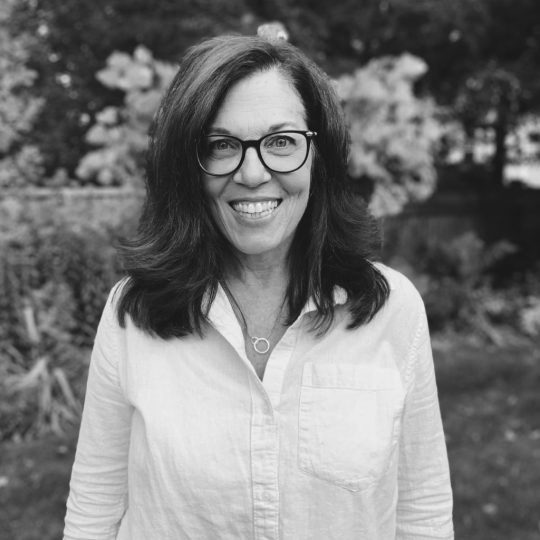
Jeanne Veillette Bowerman is a Senior Executive at Pipeline Media Group and Book Pipeline, Editor-in-Chief of Pipeline Artists, co-host of the Pipeline Artists original podcast, "Reckless Creatives," former Editor-in-Chief of Script magazine and a former Senior Editor at Writer's Digest. Her Script column "Balls of Steel" was selected as recommended reading by Universal Writers Program. A compilation of her articles is now available—Balls of Steel: The Screenwriter's Mindset. She is also a partner at Fringe Press and Co-Founder and moderator of the weekly Twitter screenwriters’ chat, #Scriptchat. She wrote the narrative adaptation of the Pulitzer Prize-winning book, Slavery by Another Name: The Re-Enslavement of Black Americans from the Civil War to World War II, with its author, Douglas A. Blackmon, former senior national correspondent of The Wall Street Journal and has now ventured into writing historical fiction. Follow Jeanne on X: @jeannevb
#writblr#writers on tumblr#writing community#writers of tumblr#writing advice#writing tips#writer beware#screenwriting#screenplays#writing scams#publishing scams#writer#writers#writerscommunity#books to movies
3 notes
·
View notes
Text
Somethings I Notice about Fandoms
No matter what fandom I walk into, these are the things I mostly seen.
1: The main character isn't the most popular character
This is a big one, but have you ever noticed that the main character is rarely talking about, but the other characters are?Now don't get me wrong. It great that fans are given these characters the recognition they deserve, but Sometimes the main character Is least talked about even if their name is in the title of their franchise. It's odd, isn't it? People will say this non- main character is underrated, but in reality, they are overrated
2:Light to Dark, Dark to Light
Every franchise has this kind of treatment. If it is horror, it becomes wholesome if wholesome it becomes horror. Even franchises that are in disguise are not safe from this predicament. Tell me name one franchise that doesn't have its opposite AU of its original attent
3: Alternate universe alternate universe's everywhere
Admit it, there's always an alternate universe of any franchise that can be simple as in just an OC character in the spotlight, or it's a completely different universe with the same characters Heck combine 2 worlds if you must make them interact. Just hope they can be Weaven well as a basket Basically just go nuts
4: Official ships is over shadow by non cannon ships
Even when the franchise has an end game for Lover most of the time They would be in the will, they won't they hell? Or the official ship just gets overlooked. Because they see the potential in a non cannon relationship that many fans would wish to be the real focus. Does cherry picking many scenes that could be considered just that? And I bet there's even at least one character. That's basically a Casanova to fans. Someone who has so many ships that you can make a bachelor(ette) show with all the potential. The real question is, who will they choose?
5: Is the adaptation better than the original?
I think this question is brought up a lot of times and any sort of fandom. In the original, this event happened, but the application was slightly different. Heck, there may be a character exclusive that can only be seen in that adaptation. But people will like the character and wish to be part of the main core. (If they are well written) But some adaptations seem to miss the mark if you get my drift. So the other part of the question is, how well can it stand with the main franchise As well as its own
6: A very impatient fandom
This may make some conservacy, but this needs to be said. You're all very impatient. Sometimes, you know that I get that you want things to continue. But like a chef in a kitchen takes time to prep, bake, and set. No one likes a rush product even if they have a deadline to meet. Sometimes, it's better to be late than never.
#sonic the hedgehog#mario bros#fnaf#disney#harry potter#cartoon#books to movies#movie to book#video games#video games to shows#Do you think I'm done? No I just only started#ttte#movie to video games#mlp#mlp fim#crossover#I'm not hating on any Fandoms This is just something i've been observing for pretty long time#Everyone's is more than free to add to this#fnf#thomas and his friends#winnie the pooh#alternative universe#undertale#deltarune#pokémon#literature#legend of zelda#nights journey of dreams#naruto#one piece
7 notes
·
View notes
Text


#gone girl#amy elliot dunne#nick dunne#gillian flynn#movies#books to movies#ben affleck#rosamund pike#movie gifs#gone girl gifs#amy dunne#my gifs#nicholas dunne#david fincher
8 notes
·
View notes
Text

Why yes, I am just encouraging people to read 📚
#multifandom#multifandom edit#books#books to movies#tris prior#divergent#shailene woodley#clary fray#the mortal instruments#lily collins#rose hathaway#vampire academy#zoey deutch#harry potter movies#hermione granger#harry potter#ron weasley#emma watson#daniel radcliffe#rupert grint#katniss everdeen#hunger games#jennifer lawrence#lena duchannes#beautiful creatures#annabeth chase#percy jackson#alexandra daddario#alannacouture#ouat.t100.adow.sab.etc
12 notes
·
View notes